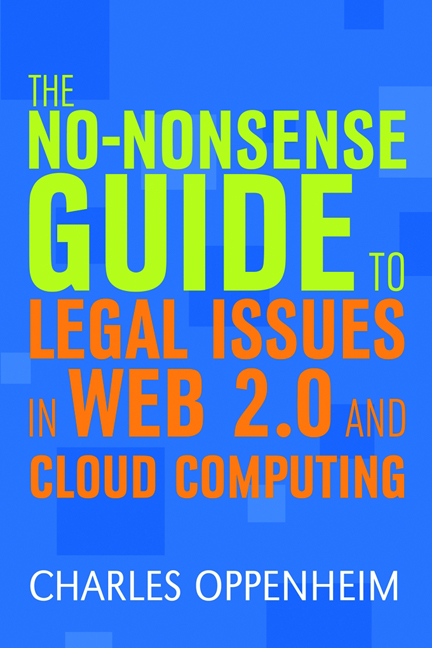Summary
Introduction
This chapter reflects the law of defamation in early 2012. In May 2012 the Government introduced a Defamation Bill to revise the law of defamation – see www.publications.parliament.uk/pa/bills/cbill/2012-2013/0005/13005.i-i.html. Readers are urged to check the progress of this Bill, as it will probably have significant impact on defamation law in England and Wales. A person – an individual or an organization – can sue if someone writes or says something about them that causes them damage. Often, this is not just financial damage, but damage to reputation. In England and Wales, there are two types of defamation. Libel is a defamatory statement in fixed format, such as on paper, in an e-mail, in a tweet or Facebook posting or in a phone text message. Slander is when the defamatory statement is made orally, but has no permanence, for example, no audio recording was made of it. In the case of Web 2.0, it is in fixed format, and so like other internet-related cases (see below) would be considered to be libel. Incidentally, Scots law does not recognize the concept of slander.
There is a real danger of libel or slander on Web 2.0 services. The informal style of some of the messages encourages informal responses, as does the use of smileys such as :-), ;-) and :-(to indicate the sense in which a person is sending a message. For some obscure psychological reasons that are difficult to understand, when people send a message by keyboarding to screen and pressing the send button, they sometimes include comments that can be far stronger and more abusive than people would care to put on paper, or say to the third party. Maybe it is this lack of non-verbal clues, or the anonymity provided by the internet, that encourages such risky statement making. Even so it is astonishing that they do not realize the risks they are taking, but that is a fact of life.
To be considered defamatory, the statement must tend to be, or be, likely to lower the reputation of the defamed person among reasonable people who have read or heard the statement.
- Type
- Chapter
- Information
- Publisher: FacetPrint publication year: 2012



